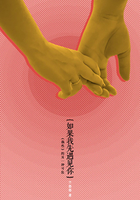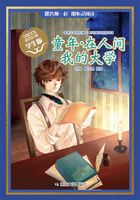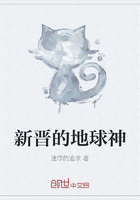A year passed, and when Philip came to the school the old masters were all in their places; but a good many changes had taken place notwithstanding their stubborn resistance, none the less formidable because it was concealed under an apparent desire to fall in with the new head's ideas. Though the form-masters still taught French to the lower school, another master had come, with a degree of doctor of philology from the University of Heidelberg and a record of three years spent in a French lycee, to teach French to the upper forms and German to anyone who cared to take it up instead of Greek. Another master was engaged to teach mathematics more systematically than had been found necessary hitherto. Neither of these was ordained. This was a real revolution, and when the pair arrived the older masters received them with distrust. A laboratory had been fitted up, army classes were instituted; they all said the character of the school was changing. And heaven only knew what further projects Mr. Perkins turned in that untidy head of his. The school was small as public schools go, there were not more than two hundred boarders; and it was difficult for it to grow larger, for it was huddled up against the Cathedral; the precincts, with the exception of a house in which some of the masters lodged, were occupied by the cathedral clergy; and there was no more room for building. But Mr. Perkins devised an elaborate scheme by which he might obtain sufficient space to make the school double its present size. He wanted to attract boys from London. He thought it would be good for them to be thrown in contact with the Kentish lads, and it would sharpen the country wits of these.
“It's against all our traditions,” said Sighs, when Mr. Perkins made the suggestion to him. “We've rather gone out of our way to avoid the contamination of boys from London.”
“Oh, what nonsense!” said Mr. Perkins.
No one had ever told the form-master before that he talked nonsense, and he was meditating an acid reply, in which perhaps he might insert a veiled reference to hosiery, when Mr. Perkins in his impetuous way attacked him outrageously.
“That house in the precincts — if you'd only marry I'd get the Chapter to put another couple of stories on, and we'd make dormitories and studies, and your wife could help you.”
The elderly clergyman gasped. Why should he marry? He was fifty-seven, a man couldn't marry at fifty-seven. He couldn't start looking after a house at his time of life. He didn't want to marry. If the choice lay between that and the country living he would much sooner resign. All he wanted now was peace and quietness.
“I'm not thinking of marrying,” he said.
Mr. Perkins looked at him with his dark, bright eyes, and if there was a twinkle in them poor Sighs never saw it.
“What a pity! Couldn't you marry to oblige me? It would help me a great deal with the Dean and Chapter when I suggest rebuilding your house.”
But Mr. Perkins' most unpopular innovation was his system of taking occasionally another man's form. He asked it as a favour, but after all it was a favour which could not be refused, and as Tar, otherwise Mr. Turner, said, it was undignified for all parties. He gave no warning, but after morning prayers would say to one of the masters:
“I wonder if you'd mind taking the Sixth today at eleven. We'll change over, shall we?”
They did not know whether this was usual at other schools, but certainly it had never been done at Tercanbury. The results were curious. Mr. Turner, who was the first victim, broke the news to his form that the headmaster would take them for Latin that day, and on the pretence that they might like to ask him a question or two so that they should not make perfect fools of themselves, spent the last quarter of an hour of the history lesson in construing for them the passage of Livy which had been set for the day; but when he rejoined his class and looked at the paper on which Mr. Perkins had written the marks, a surprise awaited him; for the two boys at the top of the form seemed to have done very ill, while others who had never distinguished themselves before were given full marks. When he asked Eldridge, his cleverest boy, what was the meaning of this the answer came sullenly:
“Mr. Perkins never gave us any construing to do. He asked me what I knew about General Gordon.”
Mr. Turner looked at him in astonishment. The boys evidently felt they had been hardly used, and he could not help agreeing with their silent dissatisfaction. He could not see either what General Gordon had to do with Livy. He hazarded an inquiry afterwards.
“Eldridge was dreadfully put out because you asked him what he knew about General Gordon,” he said to the headmaster, with an attempt at a chuckle.
Mr. Perkins laughed.
“I saw they'd got to the agrarian laws of Caius Gracchus, and I wondered if they knew anything about the agrarian troubles in Ireland. But all they knew about Ireland was that Dublin was on the Liffey. So I wondered if they'd ever heard of General Gordon.”
Then the horrid fact was disclosed that the new head had a mania for general information. He had doubts about the utility of examinations on subjects which had been crammed for the occasion. He wanted common sense.
Sighs grew more worried every month; he could not get the thought out of his head that Mr. Perkins would ask him to fix a day for his marriage; and he hated the attitude the head adopted towards classical literature. There was no doubt that he was a fine scholar, and he was engaged on a work which was quite in the right tradition: he was writing a treatise on the trees in Latin literature; but he talked of it flippantly, as though it were a pastime of no great importance, like billiards, which engaged his leisure but was not to be considered with seriousness. And Squirts, the master of the Middle Third, grew more ill-tempered every day.
It was in his form that Philip was put on entering the school. The Rev. B. B. Gordon was a man by nature ill-suited to be a schoolmaster: he was impatient and choleric. With no one to call him to account, with only small boys to face him, he had long lost all power of self-control. He began his work in a rage and ended it in a passion. He was a man of middle height and of a corpulent figure; he had sandy hair, worn very short and now growing gray, and a small bristly moustache. His large face, with indistinct features and small blue eyes, was naturally red, but during his frequent attacks of anger it grew dark and purple. His nails were bitten to the quick, for while some trembling boy was construing he would sit at his desk shaking with the fury that consumed him, and gnaw his fingers. Stories, perhaps exaggerated, were told of his violence, and two years before there had been some excitement in the school when it was heard that one father was threatening a prosecution: he had boxed the ears of a boy named Walters with a book so violently that his hearing was affected and the boy had to be taken away from the school. The boy's father lived in Tercanbury, and there had been much indignation in the city, the local paper had referred to the matter; but Mr. Walters was only a brewer, so the sympathy was divided. The rest of the boys, for reasons best known to themselves, though they loathed the master, took his side in the affair, and, to show their indignation that the school's business had been dealt with outside, made things as uncomfortable as they could for Walters' younger brother, who still remained. But Mr. Gordon had only escaped the country living by the skin of his teeth, and he had never hit a boy since. The right the masters possessed to cane boys on the hand was taken away from them, and Squirts could no longer emphasize his anger by beating his desk with the cane. He never did more now than take a boy by the shoulders and shake him. He still made a naughty or refractory lad stand with one arm stretched out for anything from ten minutes to half an hour, and he was as violent as before with his tongue.
No master could have been more unfitted to teach things to so shy a boy as Philip. He had come to the school with fewer terrors than he had when first he went to Mr. Watson's. He knew a good many boys who had been with him at the preparatory school. He felt more grownup, and instinctively realised that among the larger numbers his deformity would be less noticeable. But from the first day Mr. Gordon struck terror in his heart; and the master, quick to discern the boys who were frightened of him, seemed on that account to take a peculiar dislike to him. Philip had enjoyed his work, but now he began to look upon the hours passed in school with horror. Rather than risk an answer which might be wrong and excite a storm of abuse from the master, he would sit stupidly silent, and when it came towards his turn to stand up and construe he grew sick and white with apprehension. His happy moments were those when Mr. Perkins took the form. He was able to gratify the passion for general knowledge which beset the headmaster; he had read all sorts of strange books beyond his years, and often Mr. Perkins, when a question was going round the room, would stop at Philip with a smile that filled the boy with rapture, and say:
“Now, Carey, you tell them.”
The good marks he got on these occasions increased Mr. Gordon's indignation. One day it came to Philip's turn to translate, and the master sat there glaring at him and furiously biting his thumb. He was in a ferocious mood. Philip began to speak in a low voice.
“Don't mumble,” shouted the master.
Something seemed to stick in Philip's throat.
“Go on. Go on. Go on.”
Each time the words were screamed more loudly. The effect was to drive all he knew out of Philip's head, and he looked at the printed page vacantly. Mr. Gordon began to breathe heavily.
“If you don't know why don't you say so? Do you know it or not? Did you hear all this construed last time or not? Why don't you speak? Speak, you blockhead, speak!”
The master seized the arms of his chair and grasped them as though to prevent himself from falling upon Philip. They knew that in past days he often used to seize boys by the throat till they almost choked. The veins in his forehead stood out and his face grew dark and threatening. He was a man insane.
Philip had known the passage perfectly the day before, but now he could remember nothing.
“I don't know it,” he gasped.
“Why don't you know it? Let's take the words one by one. We'll soon see if you don't know it.”
Philip stood silent, very white, trembling a little, with his head bent down on the book. The master's breathing grew almost stertorous.
“The headmaster says you're clever. I don't know how he sees it. General information.” He laughed savagely. “I don't know what they put you in his form for, Blockhead.”
He was pleased with the word, and he repeated it at the top of his voice.
“Blockhead! Blockhead! Club-footed blockhead!”
That relieved him a little. He saw Philip redden suddenly. He told him to fetch the Black Book. Philip put down his Caesar and went silently out. The Black Book was a sombre volume in which the names of boys were written with their misdeeds, and when a name was down three times it meant a caning. Philip went to the headmaster's house and knocked at his study-door. Mr. Perkins was seated at his table.
“May I have the Black Book, please, sir.”
“There it is,” answered Mr. Perkins, indicating its place by a nod of his head. “What have you been doing that you shouldn't?”
“I don't know, sir.”
Mr. Perkins gave him a quick look, but without answering went on with his work. Philip took the book and went out. When the hour was up, a few minutes later, he brought it back.
“Let me have a look at it,” said the headmaster. “I see Mr. Gordon has black-booked you for ‘gross impertinence.' What was it?”
“I don't know, sir. Mr. Gordon said I was a club-footed blockhead.”
Mr. Perkins looked at him again. He wondered whether there was sarcasm behind the boy's reply, but he was still much too shaken. His face was white and his eyes had a look of terrified distress. Mr. Perkins got up and put the book down. As he did so he took up some photographs.
“A friend of mine sent me some pictures of Athens this morning,” he said casually. “Look here, there's the Akropolis.”
He began explaining to Philip what he saw. The ruin grew vivid with his words. He showed him the theatre of Dionysus and explained in what order the people sat, and how beyond they could see the blue Aegean. And then suddenly he said:
“I remember Mr. Gordon used to call me a gipsy counter-jumper when I was in his form.”
And before Philip, his mind fixed on the photographs, had time to gather the meaning of the remark, Mr. Perkins was showing him a picture of Salamis, and with his finger, a finger of which the nail had a little black edge to it, was pointing out how the Greek ships were placed and how the Persian.















